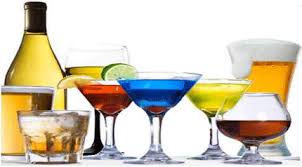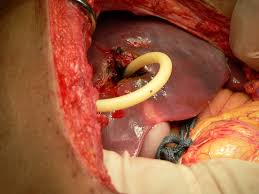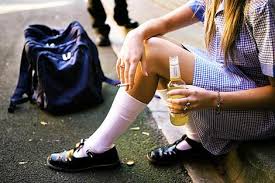Rehab Articles
A new study conducted at Florida Atlantic University has found that there is a link between binge drinking and poor self control in young adults. The study was designed to evaluate whether certain specific behavioral traits which were related to self control and inhibition behavior may increase the risk of binge drinking for some young adults. According to Florida Atlantic University Charles E. Schmidt College of Science psychology student and lead study author Andres L. Paz “There are many aspects of inhibition behavior, which is essentially the ability to stop yourself from a particular behavior. Looking specifically at risk factors, I wanted to see if there was one particular aspect of inhibition that could better predict propensity in young adults to binge drink.”
The FAU study on binge drinking and self control was published in the Alcohol and Alcoholism journal. Author Paz explained that “Perhaps our biggest takeaway from this study is that we suspect that the inability to withhold a response from stimuli plays a key role in putting a person at greater risk of binge drinking behaviors. We still don’t know if binge drinking puts you at risk of becoming an alcoholic or whether it is simply a phase you outgrow when you graduate. And what about weekend warrior binge drinkers?” Paz also cautioned that “There are so many elements involved with any kind of addiction including alcoholism. That is why it’s so important to continue research in this area to help us develop more personalized approaches to treat addiction. One size doesn’t fit all.”
Rehab Articles

binge drinking, immune system impairment
A new study shows that binge drinking results in immune system impairment for young adults, and is just one more reason why this type of activity should be avoided at all costs. Binge drinking is drinking 4-5 shots or an equivalent amount of beer or wine in a two hour period. This level is enough to reach the legal limit of intoxication based on a blood alcohol level of .08. Loyola University Chicago Stritch School of Medicine researcher Majid Afshar, M.D., M.S.C.R. Performed the study using volunteers. Participants drank between 4 and 5 shots of vodka, and their blood and immune system function was analyzed after 30 minutes, two hours, and five hours. After 20 minutes the immune system of the volunteers actually increased, but this was not true at the two and five hour marks. At these later points the young adults showed immune system impairment.
Many young adults engage in binge drinking 4 times a month on average, and this can cause considerable immune system impairment. This activity greatly increases the risk of many types of traumatic injuries including falls, vehicle accidents and automobile collisions, burns, and even gunshot wounds and stab wounds. One in three people who go to the emergency room have some level of alcohol in their system. The immune system impairment caused by binge drinking makes it harder for any injuries to heal, and binge drinkers have a higher risk for infection and pneumonia as well. The National Institute on Alcohol Abuse and Alcoholism helped to fund the study.
Rehab Articles

research study, binge drinking
A new research study performed at the University of Missouri shows that binge drinking can alter liver proteins, and this can cause cancer and cirrhosis of the liver. According to the lead research study author, Shivendra Shukla, Ph.D., “We know that chronic alcohol use is damaging to the liver, but binge drinking amplifies that damage. Our latest research shows that epigenetic modifications in histone structures occur within the liver as a result of heavy binge drinking. Epigenetic alterations are changes in genes that are not caused by changes in the DNA sequence or genetic code.” Binge drinking causes liver tissues to undergo genetic changes, and one of the most common factors with chronic liver failure is excessive alcohol consumption. The damage to the liver that is caused by excessive drinking can not be repaired or reversed.
The research study on binge drinking and liver damage can be found in the journal Hepatology International. Dr. Shukla also stated “Every response in the body is due to alterations in proteins. Binge drinking is an environmental trigger that negatively affects histones by altering the correct binding of DNA. The result is unnecessary replication in the copied structure. This initially causes inflammation and damage to the cells as they form, but it is also eventually the cause of more serious diseases such as cirrhosis and cancer.” The study author also explained “Binge drinking can create an inflammatory response in the liver that is like a cluster bomb, sending out various damaging signals to other organ systems in the body. If those organs are working at a lower level of function, then a whole host of physiological processes are affected as a consequence of binge drinking.”
Rehab Articles

binge drinking, teen alcohol abuse
Teen alcohol abuse, and binge drinking among all ages, are big problems but a new report by the American College of Emergency Physicians show that sending text messages to the individual after they have had an Emergency Room visit can be beneficial and help lower the risk of binge drinking and teen alcohol abuse. Researchers found that adolescents and young adults who were seen in the ER and who had a positive history for alcohol abuse were more than 50% less likely to engage in dangerous drinking when they received follow up text messages the next day.
According to University of Pittsburgh School of Medicine physician Dr. Brian Suffoletto “Each day in the U.S., more than 50,000 adults ages 18 to 24 visit ERs and up to half have hazardous alcohol use patterns. More than a third of them report alcohol abuse or dependence. The emergency department provides a unique setting to screen young adults for drinking problems and to engage with them via their preferred mode of communication to reduce future use.” Dr. Suffoletto went on to say “Illicit drugs and opiates grab all the headlines, but alcohol remains the fourth leading cause of preventable death in the U.S. If we can intervene in a meaningful way in the health and habits of people when they are young, we could make a real dent in that tragic statistic. Alcohol may bring them to the ER, but we can do our part to keep them from becoming repeat visitors.” The report and underlying study was published in the online version of the Annals of Emergency Medicine.
Rehab Articles

binge drinking, teen alcohol abuse
A new study shows that researchers may be able to successfully predict the risk of binge drinking for teens. This may help with identifying teen alcohol abuse early on and preventing complications. The study looked at factors that include brain structure, life experience, and individual personality. All of these factors are proven to have a strong link to teen alcohol abuse and binge drinking. The study used data from the IMAGEN project to develop a model that can include up to 40 various risk factors for substance abuse among teens. The lead author for the study, University College Dublin professor Dr. Robert Whelan, said “Our goal was to better understand the relative roles of brain structure and function, personality, environmental influences, and genetics in the development of adolescent abuse of alcohol. This multidimensional risk profile of genes, brain function, and environmental influences can help in the prediction of binge drinking at age 16 years.”
The study on teen alcohol abuse and binge drinking involved more than 2,000 14 year olds from several European countries including France, Germany, England, and Ireland. Professor Gunter Schumann, who is associated with the King’s College London and the Institute of Psychiatry and who is also the IMAGEN project Coordinator, stated “We aimed to develop a ‘gold standard’ model for predicting teenage behavior which can be used as a benchmark for the development of simpler, widely applicable prediction models.” Being able to predict the risk of teen alcohol abuse and binge drinking may be the first step to treatment that is effective.



